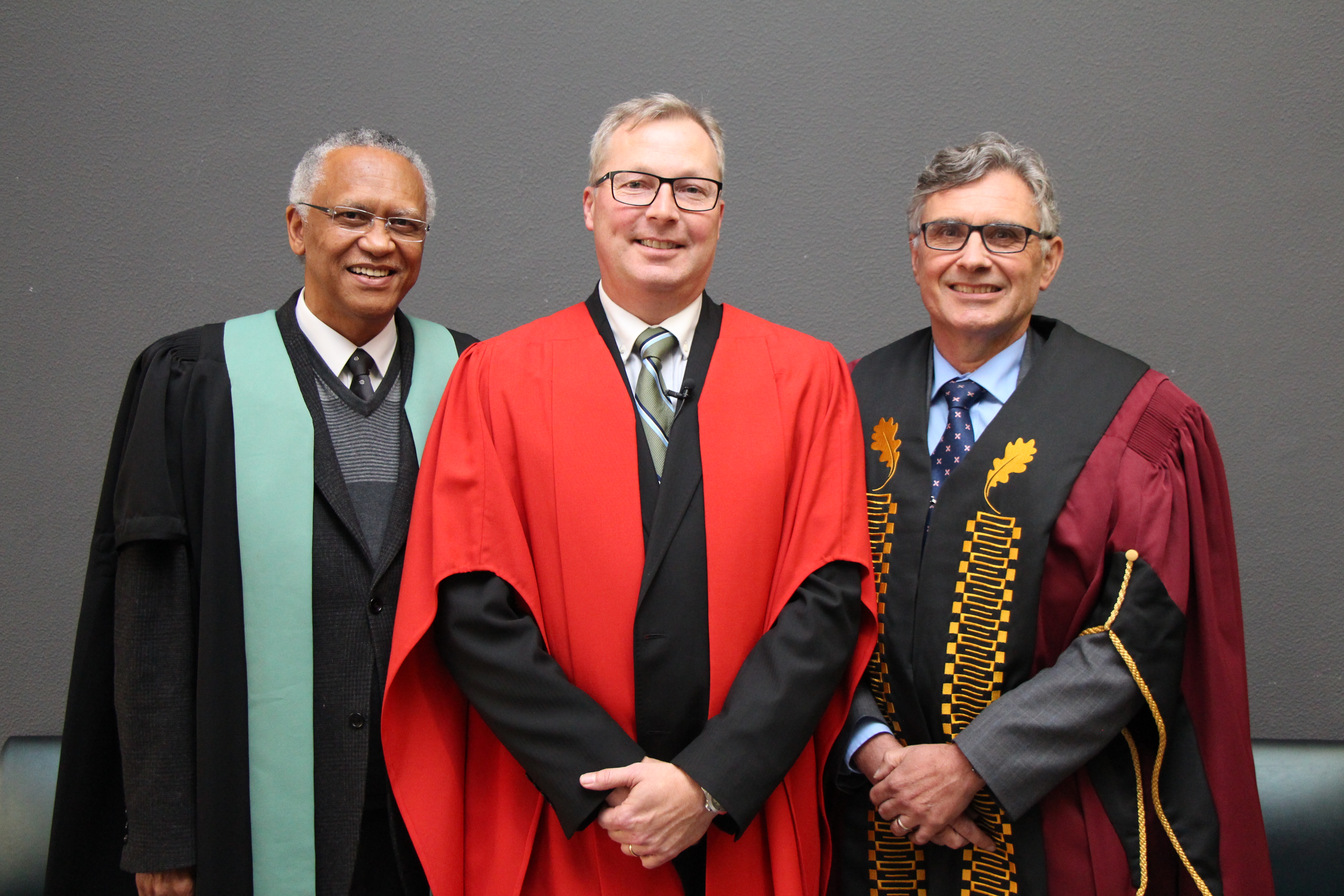Lifestyle changes could help boost male fertility by decreasing the amount of free radicals ̶ molecules that can damage healthy cells ̶ in semen.
This was one of the viewpoints of Professor Stefan du Plessis of the Division of Medical Physiology at Stellenbosch University (SU) in his inaugural lecture on Tuesday (23 August 2016).
Du Plessis said although male infertility can be due to a variety of conditions, free radicals in semen may be a major cause. He added that high levels of these molecules could also explain a large proportion of unexplained male infertility cases.
Citing previous studies, Du Plessis said high levels of free radicals are present "in the semen of 25-40% of infertile men whereas fertile men do not have a detectable level of free radicals in their semen. These infertile patients also display low levels of antioxidants in their seminal plasma."
He pointed out that free radicals found in semen originate from, among others, white blood cells, immature spermatozoa, the enlargement of veins in the scrotum, excessive smoking, alcohol consumption, and exposure to toxins in the environment.
Du Plessis said lifestyle changes could be one of the ways to reduce the level of free radicals in semen.
"Detrimental behaviour leading to increased production of free radicals should be addressed through lifestyle changes such as a balanced diet, regular exercise, losing weight, cessation of substance abuse (smoking, drugs and alcohol) as well as minimising exposure to pollution, toxins and heavy metals."
"Furthermore, it is also vital to prevent activities that may cause elevation of scrotal temperature e.g. hot baths, extended periods of driving or sedentary office hours."
Du Plessis said free radicals are not exclusively beneficial or exclusively detrimental to sperm function and male fertility.
"Rather, they need to be maintained at appropriate levels to ensure physiological function while preventing pathological damage."
According to Du Plessis, free radicals become a problem when they outnumber antioxidants in the body. When not maintained at physiologically appropriate levels, free radicals can damage healthy cells.
He said an accurate assessment of the level of free radicals in semen should become an integral part of the medical examination of patients with unexplained and unknown infertility in order to assist clinicians in elucidating the underlying reasons, thereby providing an optimal treatment regime for these patients.
Du Plessis emphasised the need for more research on the involvement of free radicals in the regulation of male fertility.
- Photo 1: Pixabay
- Photo 2: Proff Jimmy Volmink, Dean of the Faculty of Medicine and Health Sciences, Stefan du Plessis and Wim de Villiers, SU Rector and Vice-Chancellor, at the inaugural lecture.

